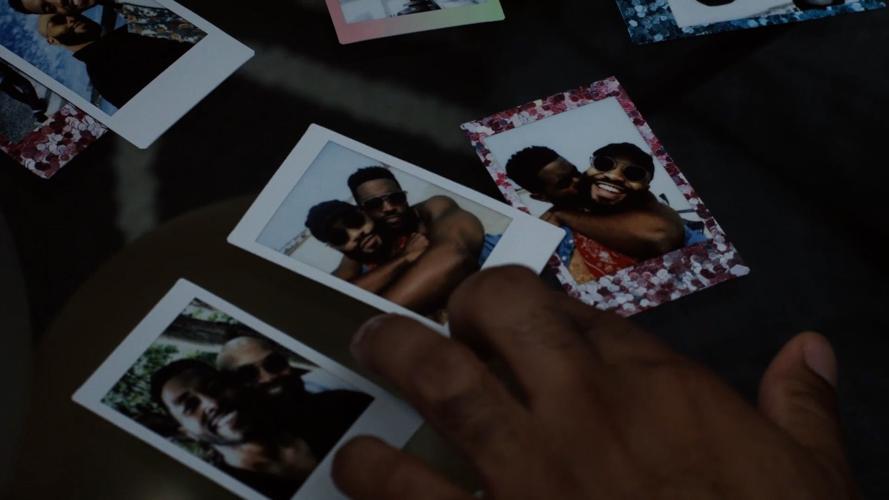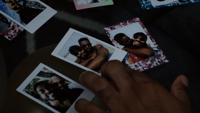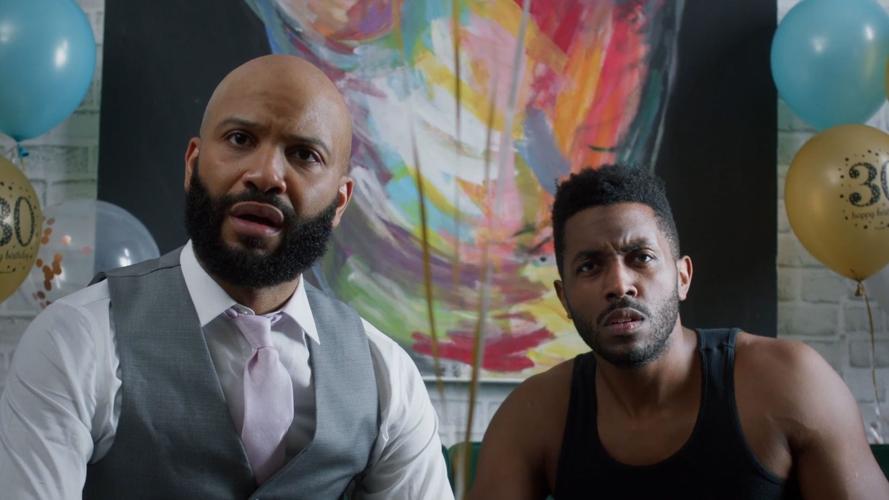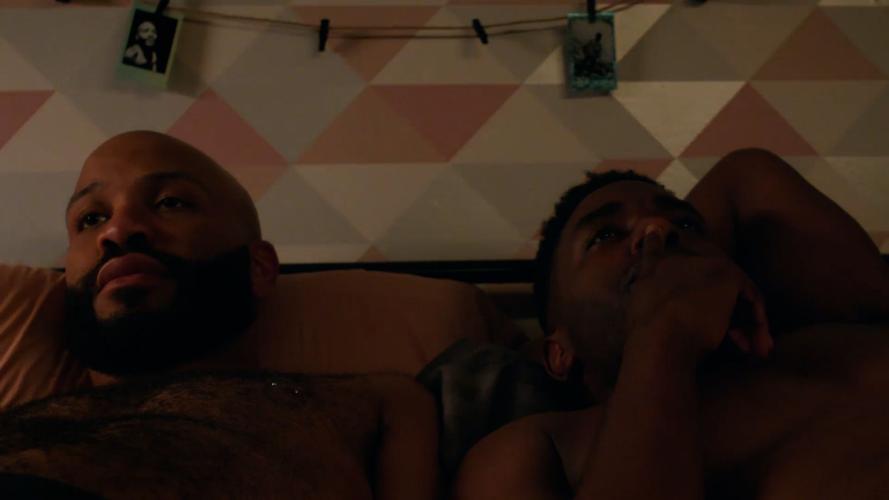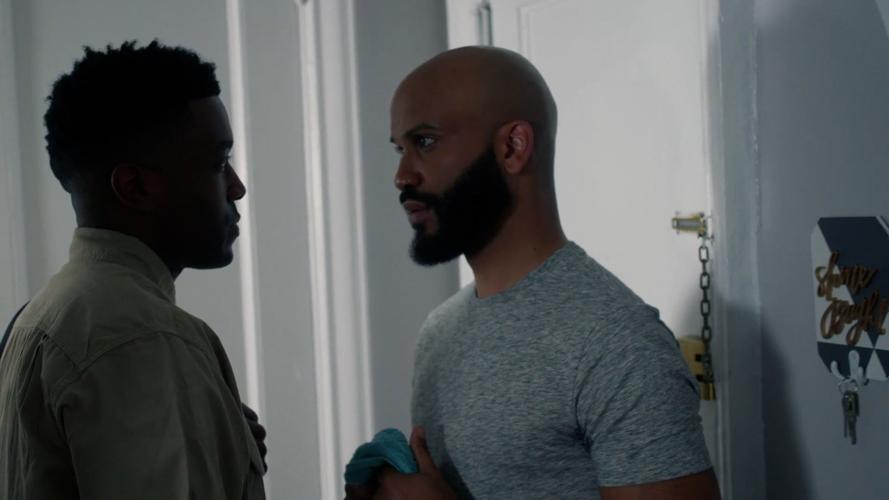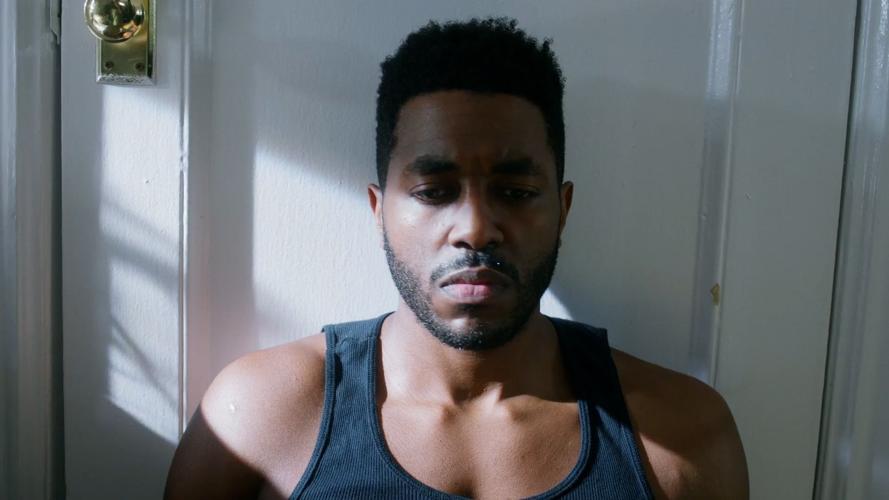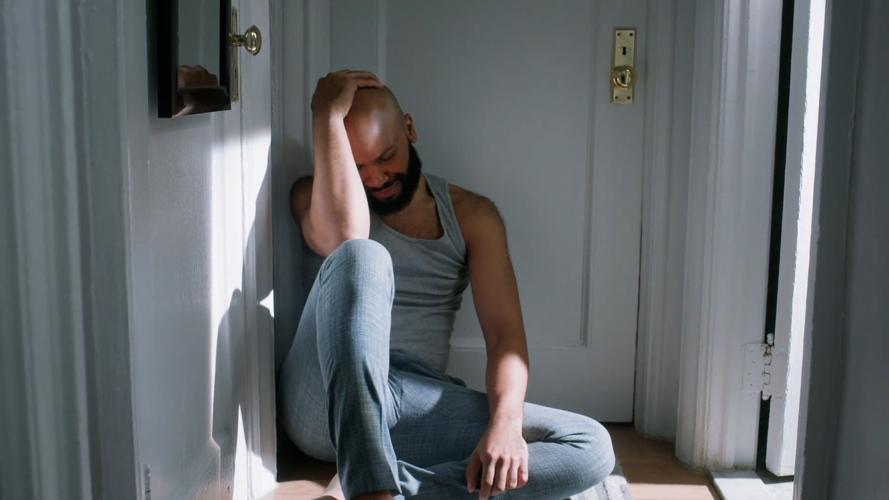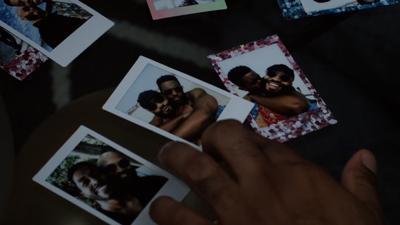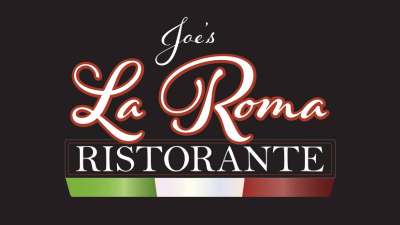David J. Cork is an actor and writer who created the program Bi: The Webseries (2014), about a young Black man who identifies as bisexual. Cork wrote the series and played the main character. Ashton Pina is the filmmaker who directed that 2014 series. The two have teamed up again for this feature. Pina is still in the director's chair but this time he has taken to writing. This is Pina's feature debut, centering on a couple in New York City who find themselves confined to their apartment and having to deal with issues in their relationship.
Even though Pina is the screenwriter, there are some similarities to another series that Cork wrote, Ex Cycle (2019), particularly the episode titled "Elliott | Mark." That episode was about two men in a same-sex relationship that is ending rather than beginning. Reportedly, Pina made this film during the COVID-19 lock-down. Articles in The New York Times and the BBC point out how there was seemingly a spike in couples breaking up during that lock-down.

Pina doesn't set this film during the pandemic. He instead crafts another reason for two people to be virtually quarantined in their apartment. His reason though still draws upon real-world experiences, especially for New Yorkers who often become locked or trapped in their residences, due to incidents of terrorism. The obvious parallel is to 9/11 but New York has seen other incidents, even as of 2022, that would cause almost city-wide lock-down situations.
Recently, Brandon Krajewski directed Stone Fruit (2021), which was about a married, gay male couple experiencing an amicable divorce but a reckoning of why the two were separating permanently. The two weren't quarantined to an apartment but the film was essentially a two-man only piece, built mainly on dialogue. Pina's film is the same. The exception is that the couple in question aren't initially married. They live together with the prospect of marriage perhaps looming.

As such, this film reminded me of two other entries in recent, queer cinema. In aesthetic, color and lighting, Pina's film passes a resemblance to Ryan Gielen's Turtle Hill, Brooklyn (2013) and Joshua Tunick's Do You Take This Man (2017). Gielen's film involves two men who co-habit the same space, planning a birthday party. Tunick's film also involves two men organizing a social event. Gielen and Tunick's films go the distance and actually depict that party. This film remains with just the two men.
Cork (P-Valley and Power Book III: Raising Kanan) stars as Amari Lewis, a Black man who wakes up on his 30th birthday to find his live-in partner, Q Nichols, a fellow Black man, played by Jared Wayne Gladly, an actor who has mainly been working on Broadway and in theater. Q is 35, a lawyer, looking to become a partner and who is a meticulous and practically anal planner. However, Amari is feeling aimless and without purpose, frustrated that he doesn't know what he wants to do with his life. Amari's 30th birthday has him feeling old and wanting to reevaluate things.

When the two become virtually locked in their apartment, Amari is forced to confront his feelings and how they may not align with Q's plans. This is something explored in Gielen and Tunick's films, but the end goal, though unsure, generally leans toward the positive. It leans toward the two men staying together. Pina's film does not. Like Stone Fruit, there is this flirtation with the idea that the two men might not break up, but Pina like Krajewski recognizes that a happy ending could also mean a pair parting ways.
The difficulty of crafting a film like this is finding ways to make it visually interesting or make the dialogue as compelling as possible. When you have a film that's basically two characters trapped in one location with nothing but their words to sustain the piece, it becomes crucial that the dialogue is enough to keep one engaged. Mark Bessenger's The Last Straight Man (2014) accomplishes that. Bessenger's film is about two men trapped, in a sense, in a hotel room as they too wrestle with the future of their relationship and Bessenger's dialogue snaps and crackles, as if written by a Broadway playwright.

Pina's dialogue isn't as whip-smart. It's more staid. Half way through, there is a change as revelations are rolled out. To Pina's credit, there are no histrionics or melodrama that might drive this film into soap opera territory, even though the material is there. An irony of a celebratory event, like one's birthday, being turned into the day one breaks up with one's partner isn't new. Dekkoo's Here Comes Your Man (2021) has a similar thing happen in its fourth episode. That series though relies more on the performances of the actors than anything else.
Cork's performance here is more internal, as his character is the least verbal. His character's quarter-life crisis is delicately handled. His millennial ennui is underplayed if anything. If anyone has seen the series Cheetah in August (2015), Cork's performance is akin to that of Andre Myers (Black-ish and Dear White People). Cork's Amari plays things more close to the vest and prefers to be more controlled. Gladly's performance is the more showy or extroverted.

Not Rated but contains language, drug use and sexual situations.
Running Time: 1 hr. and 20 mins.
Available on February 7 on VOD.
Available on February 23 on DVD.

